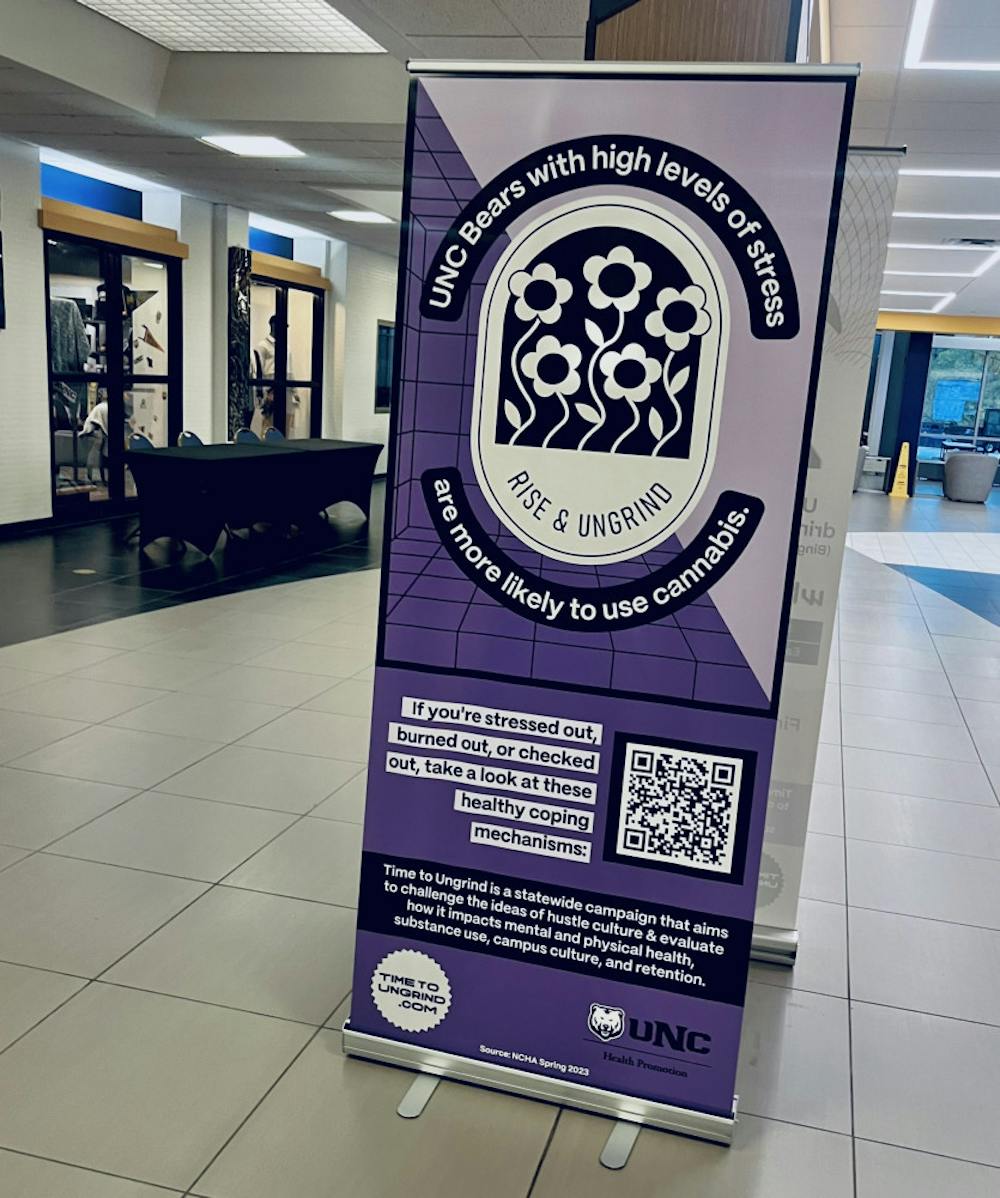Over half of students from the University of Northern Colorado reported they experience loneliness according to a survey conducted by the Office of Health Promotion in Spring 2023. Many students also reported that they suffer from anxiety, stress, depression and sleeplessness.
The rise in deaths by suicide and the worldwide increase in mental health conditions continues to climb. Mental illnesses are becoming more accepted and often encouraged to be talked about. The UNC offers several resources to help students improve their mental health and overall well-being.

“I don't think UNC is doing nearly enough,” said Rachel Salli, a UNC alum. “From my experience as a student at UNC, I had no clue that there were resources like ASAP, counseling center, psych services even available. It was never mentioned in my student orientation nor was it talked about in any of my classes. Especially as a psychology minor, it was never mentioned.”
Students at UNC have access to free and confidential resources on campus such as the Counseling Center, Assault Survivors Advocacy Program, Crisis Support, and Student Outreach and Support. New sub-committees and developments are underway to help enhance mental health and suicide prevention on campus.
“The thought of suicide comes from a place of wanting typically to escape from stress,” said John Hancock, UNC’s vice president of wellness and support. “We are trying to support student’s stress in a lot of ways that are connected to mental health, but you might not always see it.”
In 2021, UNC became a member of the JED Campus Program, a non-profit organization that helps to decrease substance abuse and prevent suicides. The program aims to enhance mental health systems and policies on campus.
The JED program was developed in consideration of students who have mental health problems that are potentially impacted by bias, racism and marginalization. UNC is showing commitment to the mental health and emotional well-being of its students. UNC must have people who understand, learn and plan for students who might be facing societal or structural inequities and community demographics.
UNC Flourish is the newest campaign geared toward improving students’ mental health and providing a safe space. The campaign has been developed over the past two years from engagement with the JED foundation. As students don’t necessarily resonate with the JED program, it has been rebranded as UNC Flourish. Hancock and Grace Turner, UNC’s director of health and promotion were excited to launch the new campaign that they have worked hard to develop.

“We have such a unique demographic of students on campus, so many different lived experiences, so many different identities,” Turner said. “We are in a space where we are navigating so many complex issues, so many delicate issues, and wanting to be really mindful and inclusive about the way that we started talking about mental health.”
The Office of Health Promotion spread various informative displays across campus. Time to Ungrind challenges ideas of hustle culture and its effects on mental and physical health, substance use, campus culture and retention. This is a statewide campaign and each display includes various facts relevant to UNC students.

Equity in Mental Health, Student Outreach and Engagement and Mental Health Training are the three sub-committees that work to improve mental health on campus. Equity in Mental Health promotes and supports mental health and emotional well-being for students of color, and students with marginalized and underrepresented identities. Student Outreach and Engagement consists of peer-to-peer programs, events, transitional support, resources and education. Mental Health Training is geared towards enhancing and expanding the existing mental health and substance use training programs that exist.
“I’ve been on campuses over the course of my 30 years where people have died by suicide and it’s just heartbreaking," Hancock said. "I’ve spent so many years of my life studying suicide, I use the word ‘suicideologist’ to apply to myself."
Hancock explained the interpersonal theory of suicide. A person needs three things to commit suicide: experienced failed belongingness, a perceived version of burdensomeness and a habituation experience to pain. One-third of that model is on connection. Hancock and Turner have been working on creating an environment on campus where students can find connections with their peers to subside some of that loneliness.
“The thoughts of suicide are more common than you might think. Mostly we don’t talk about it because of the stigma,” Hancock said.
The Counseling Center offers in-person or remote appointments to students. There are also drop-in appointments virtually or in-person for students who need sooner assistance but don’t have an appointment. There is also an on-call counselor provided for After-Hours Crisis Support. Students can also take Alcohol and Drug Assessments if they are concerned about having a substance abuse problem.
The Counseling Center is located on the second floor of Cassidy Hall. The office can be contacted by phone at 970-351-2496, or by email at UNCCounselingcenter@unco.edu. The office is open from 8 a.m. to 5 p.m. Monday through Friday. A $15 fee will be billed to a student account for each no-show appointment if the student fails to notify the Counseling Center prior to their scheduled time.
The Psychological Services Clinic is also a confidential space for students to receive help. The clinic is not free, but they try to make it affordable to students. If a student does seek out help from the Psychological Services Clinic, the clinician is a graduate counselor in training who is supervised by a qualified faculty member.
The Psychological Services Clinic is located at McKee Hall in room 247. The office can be contacted by phone at 970-351-1645 or by email at ppsy.clinic@unco.edu. They are open from 8 a.m. to 4 p.m. Monday through Thursday. A $185 fee will be charged to the student's bill for the initial psychiatric appointment. A $90 will be charged for any follow-up psychiatric appointments.
Students can find several different outlets remotely or on campus to seek out help for their mental health. There are events weekly that cater for student engagement for students which can help limit feelings of loneliness.
“Don't be anxious to seek help," Salli said. "There are resources available to help; that's what they are there for. It can be scary to speak up, but these resources are on your terms. You don't need to explain yourself nor do you have to tell them everything. Say what you feel comfortable."






